Post
A catch
Save a catch to start your fishing logbook. You will be able to to share it with the community if yo want!
A fishing trip
Post an ad to go fishing with other fishermen
Save a catch to start your fishing logbook. You will be able to to share it with the community if yo want!
Post an ad to go fishing with other fishermen
Share a thought, a question with the community
My favorite cities
×Keep your rods ready for Long-Key in Monroe. The fishing forecast is currently 3.3. The most caught fishes here are the bull shark, the gafftopsail catfish, the blue runner and the sheepshead. Come try the most famous fishing techniques like the surfcasting, boat fishing for eel, surf fishing or angling - using natural bait.
Our fishing forecast of Long Key indicates the best time to go fishing in this city.
The Bull Shark
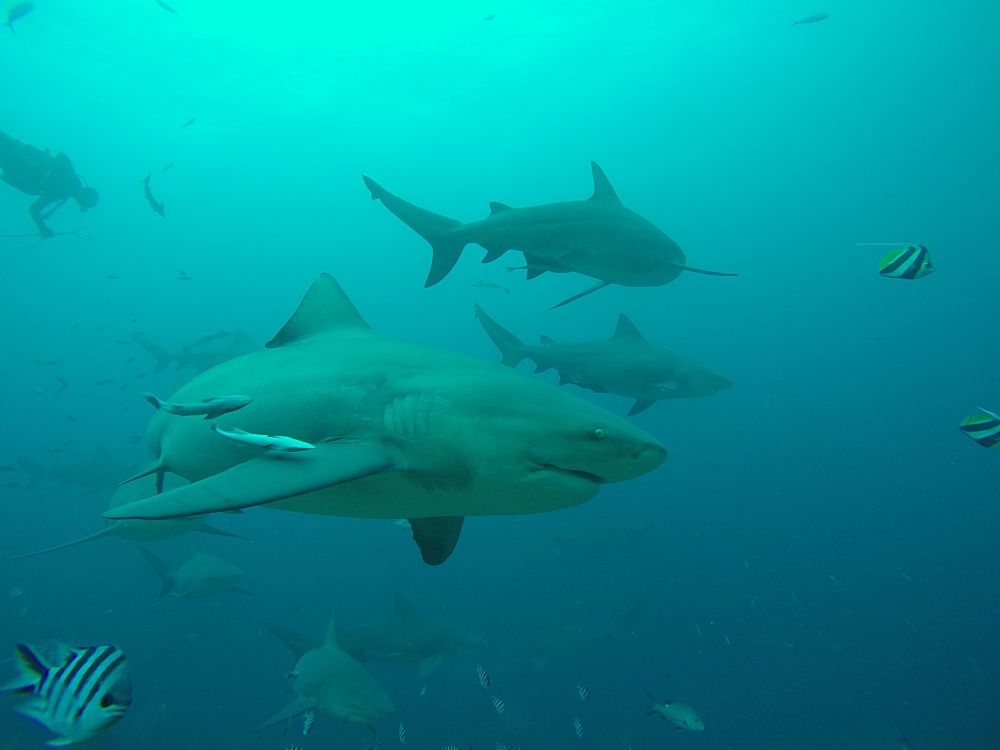
The Bull shark belongs to the Carcharchinidae Family. Its average size is 2 m. Its maximum height is 3.40 m. It can live to be 20 years old. It breeds from late summer to early fall. It can be fished from September to May. The bull shark has a stocky and massive body. Its snout is rounded and extremely short. Its eyes are very small. Its upper teeth are broad, triangular and finely crenellated. Its lower teeth are vertical and pointed. Its dental formula is as follows: 13-1 to 2-13 /12-1 to 2-12. Its back is brown to olive to dark grey. Its belly is dirty white. The first dorsal fin is large and broad, it is sickle-shaped, its origin is located in the pectoral armpit. The second dorsal fin is almost three times smaller, its origin is located slightly in front of the anal level. The pectoral muscles are long and also sickle-shaped, they are blackish at the ends. The pelvic bones are triangular in shape. The upper lobe of the caudal is well developed. It does not have an inter dorsal wrinkle.
The Bull Shark is a famous fish you can catch in Long Key.The Gafftopsail Catfish
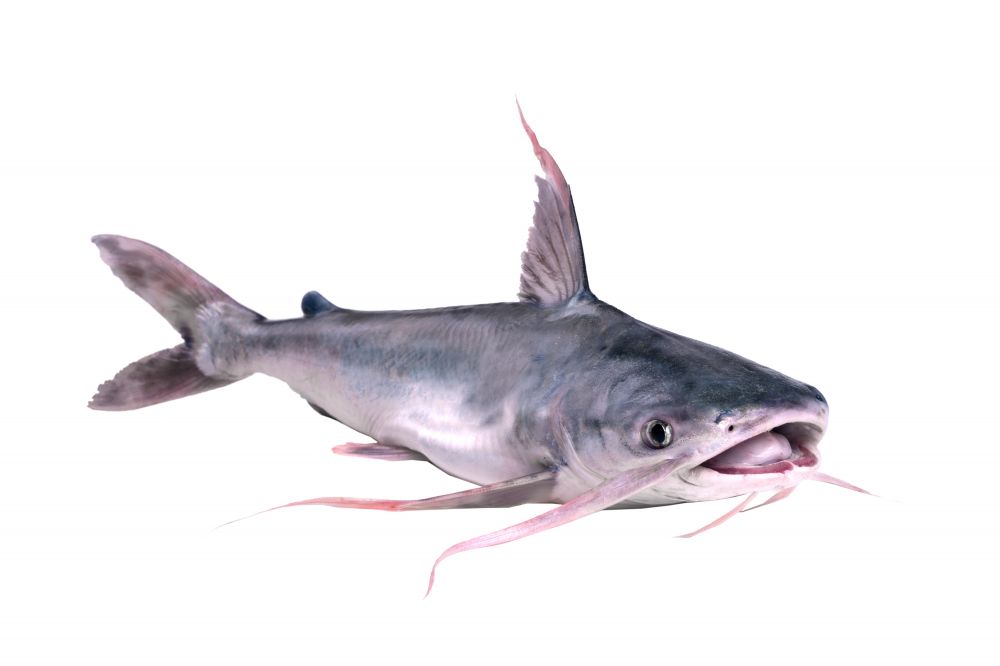
The Gafftopsail catfish belongs to the Ariidae Family. The typical length of an adult gafftopsail catfish is about 43 cm and it has an average weight of 910 g. It has a lifetime of 5 to 8 years. They breed from May to August. It can be fished all year round. The Gafftopsail catfish are blue-grey to dark brown with a light grey belly. Its appearance is typical of a catfish, except for its deeply forked tail and poisonous, serrated spines. It also has a small hump that looks like a wave. The anal fin is white or pale blue a few centimeters from the tail, with 22-28 rays and a high anterior lobe. The pelvic fin is between 15 and 30 cm in front of the caudal fin. The Gafftopsail catfish has maxillary barbells and a pair of barbells on its chin. It resembles the hardheaded catfish, but its backbone has a distinct fleshy extension (such as a ship's fore and aft topsail).
The Gafftopsail Catfish is a famous fish you can catch in Long Key.The Blue Runner
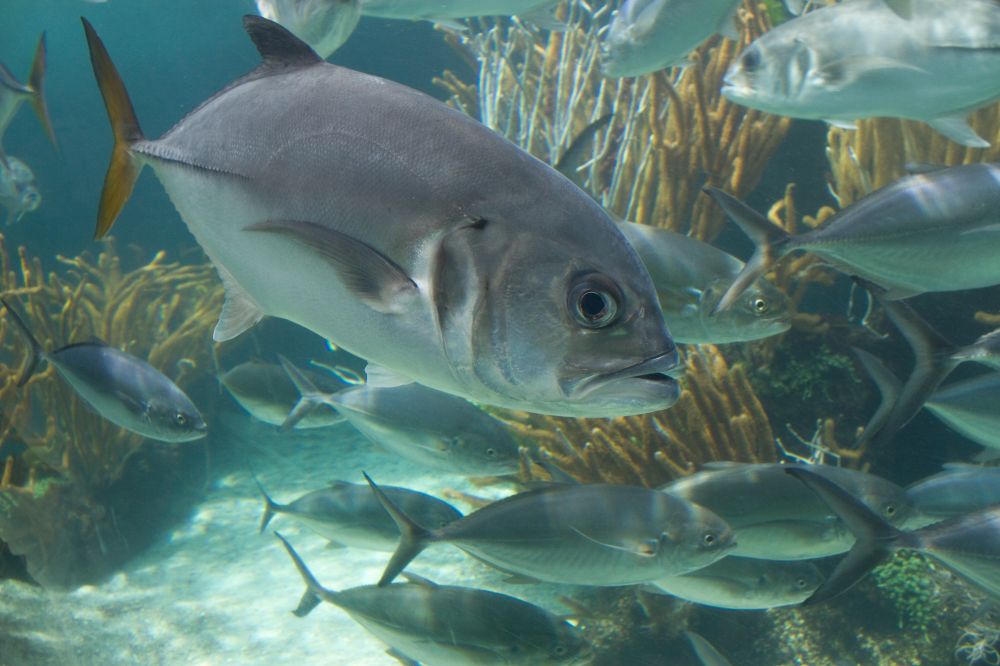
The Blue Runner belongs to the Carangidae family. The blue runner can reach a maximum length of 70 cm and a weight of 5.05 kg, but its average size is below 35 cm. The maximum lifespan recorded was 11 years. The spawning season depends on the location. They can be caught all year round. The blue runner has an elongated, moderately flattened body and a slightly pointed snout. The posterior part of the eye is covered with a moderately developed adipose eyelid, and the posterior end of the jaw is placed vertically under the center of the eye. The dorsal fin is in two parts, the first part composed of 8 spines and the second of one spine followed by 22 to 25 soft rays. The anal fin consists of 2 previously detached spines followed by a spine and 19 to 21 soft rays. Pectoral fins become sicklier with age, with 21 to 23 rays, and are slightly longer than the head. The lateral line has a pronounced but short anterior arch, the curved section intersecting the right section below the spine of the second dorsal fin. The right section contains 0 to 7 scales followed by 46 to 56 very strong scales, with bilateral hulls on the caudal peduncle. There are a total of 86 to 98 scales and scales on the entire lateral line. The color of the blue runner varies from bluish green to dorsally olive green, becoming silver grey to copper below. Juveniles often have 7 dark vertical stripes on their bodies. The color of the fins also varies, all fins ranging from darkest to darkest or from hyaline to
The Blue Runner is a famous fish you can catch in Long Key.The Sheepshead
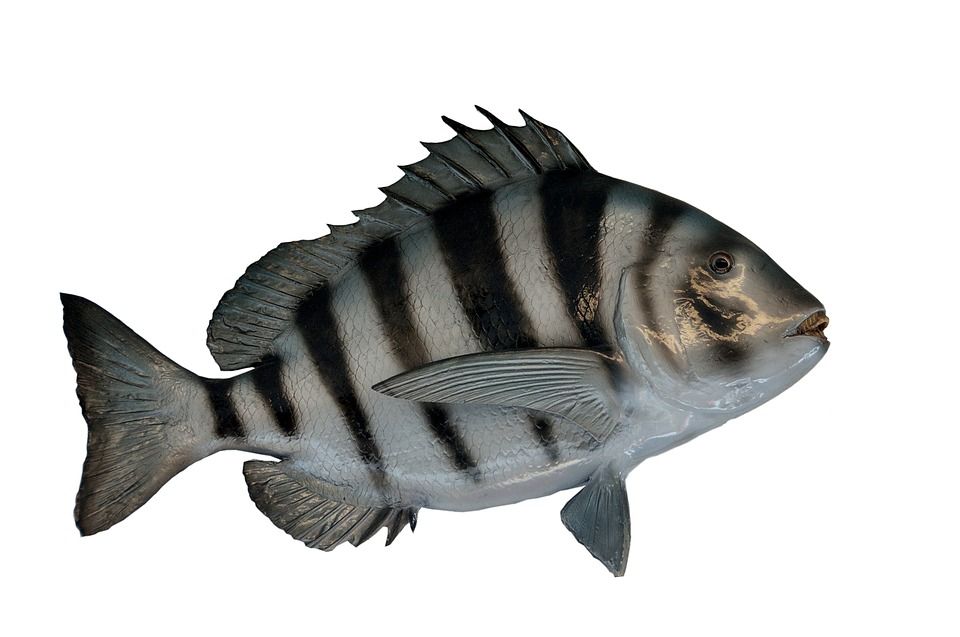
The Sheepshead belongs to the Sparidae family. Although it reaches a maximum size of about 76 cm and 22 lbs (9.6 kg), the adult sheepshead is most often about 5 to 3.6 kg and 35 cm long. The maximum known life span of the sheepshead is at least 20 years. They spawn in early spring. They can be fished all year round with the best season from December to April. The sheepshead has a deep oval body with a blunt snout and a small, almost horizontal mouth. The posterior nostril is split in appearance. The dorsal and anal fins include short, strong spines. The second spine of the anal fin is larger. The pectoral fins are long and extend beyond the anal opening when pressed (close to the body). The caudal fin is slightly forked. The adult sheepshead is silvery to greenish-yellow and has an olive back. There are five or six dark vertical crossbars on each side, which are the most distinct in young individuals. The caudal and pectoral fins are greenish, while the dorsal, anal and ventral fins are dark or black.
The Sheepshead is a famous fish you can catch in Long Key.The African Pompano
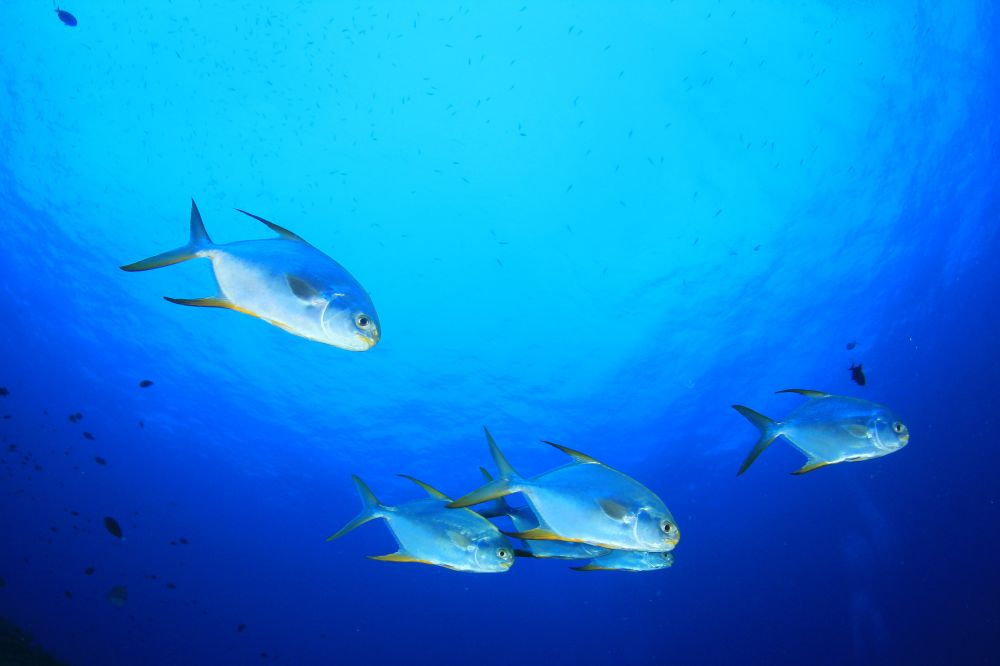
The African Pompano belongs to the Carangidae family. The maximum size can reach up to 1.50 m, but the average size is one meter. It breeds in spring and autumn. It can be fished during the hot seasons. Like many carangidae, it is a deep and laterally compressed fish, which have the deepest point of the body between the origin of the dorsal and anal fins and the head and tail tapering on either side. The dorsal and ventral profiles are also convex, the main characteristic of the adult being its more curved head compared to the more angular head profile of African Pompano. The species has 4 to 7 spines visible in the first dorsal fin, followed by a single spine and 18 to 20 soft rays in the second dorsal fin. The anal fin has two spines followed by 15 or 16 soft rays, while the pectoral fin is long and curved. The skin of the fish appears flake-free, but has tiny, embedded scales scattered over the body. The lateral line has a strong and moderately long dorsal arch, with a posterior section of 12 to 30 scales. Juvenile with filamentous rays at the anal and dorsal fins. Juveniles are characterized by their "spinning" appearance, characterized by filaments dragging anal and dorsal fins that retract with age. During maturation, the species also becomes more elongated and more similar to other types of jacks. The body is a silvery blue metallic to blue-green above, being the darkest on the head and upper shoulders, while the underside is more silvery. Juveniles have 5 chevron-sha
The African Pompano is a famous fish you can catch in Long Key.Our fishing forecast of Long Key indicates the best time to go fishing in this city.
Our fishing forecast of Long Key indicates the best time to go fishing in this city.
Our fishing forecast of Long Key indicates the best time to go fishing in this city.
